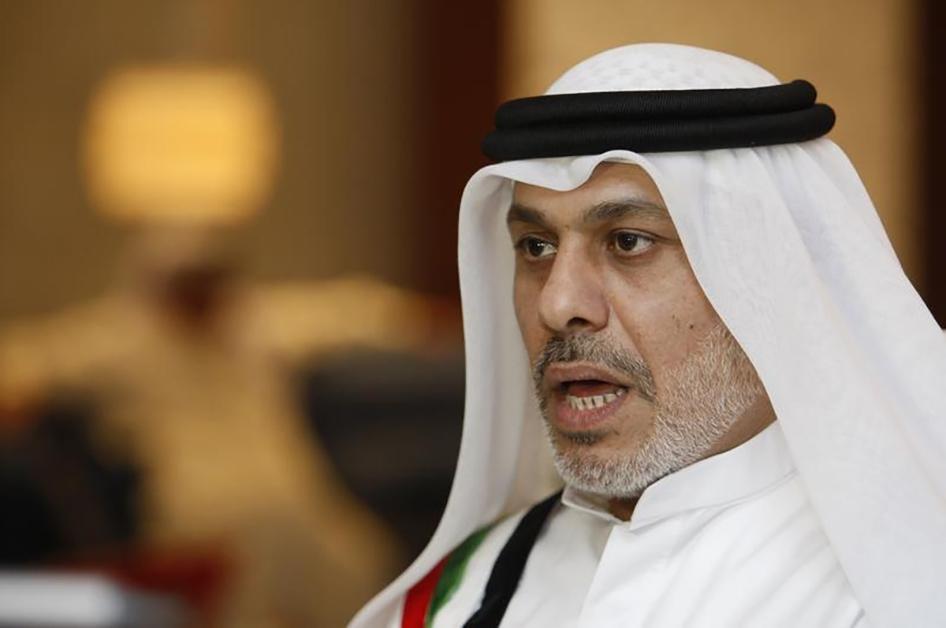Dr. Nasser bin Ghaith is a prominent economics professor and human rights defender in the United Arab Emirates. On 18 August 2015, government forces arrested Dr. bin Ghaith without charge and detained him at an unknown location. It has been over 100 days since he was last seen or heard from.
The authorities first targeted Dr. bin Ghaith in April 2011, after he and four other activists petitioned the government to institute democratic reforms. Security forces detained all five men, known popularly as the UAE 5, on charges of “publicly insulting” the country’s leadership and endangering national security. On 27 November 2011, the Federal Supreme Court sentenced the members of the UAE 5 each to between two and three years in prison.
Although President Khalifa bin Zayed Al Nahyan pardoned Dr. bin Ghaith and his co-defendants the next day, the trial was a grim foreshadowing of what was to come. Dr. bin Ghaith himself called it “a sad moment for our homeland, a beginning of a police state that has tarnished the image of the UAE forever.” This warning proved all too prophetic by March 2012, when the government began to arrest en masse anyone associated with the original petition for political reform. On July 2, 2013 – in what Human Rights Watch has described as a “fundamentally unfair trial” – an Emirati court convicted 69 of the 94 detainees on charges related to free expression and political dissent.
Dr. bin Ghaith managed to avoid re-arrest – until this year, when plain-clothes police officers reportedly searched his home, forced him into the back of a car, and disappeared him into the Emirati security apparatus. Observers speculate that his most recent detention may be related to a series of tweets posted a few days prior, in which Dr. bin Ghaith criticized the Egyptian government on the second anniversary of the 2013 Rabaa Massacre.
Now, according to Emirati activists, Dr. bin Ghaith has joined the possibly hundreds of others disappeared in the UAE – their absence a disturbing testament to the government’s increased extrajudicial criminalization of dissent. The authorities’ continued refusal to disclose Dr. bin Ghaith’s location, or even acknowledge his arrest, further violates his right to freedom from arbitrary detention and puts him at especially acute risk of ill treatment.
Before it can begin to reform its already repressive anti- terror and cyber-crime legislation, the Government of the UAE must first reaffirm its commitment to rule of law more generally; it must release Dr. Nasser bin Ghaith and reveal the whereabouts of all those individuals forcibly disappeared by state security forces.
Sam Jones is an Advocacy Fellow at Americans for Democracy & Human Rights in Bahrain.





